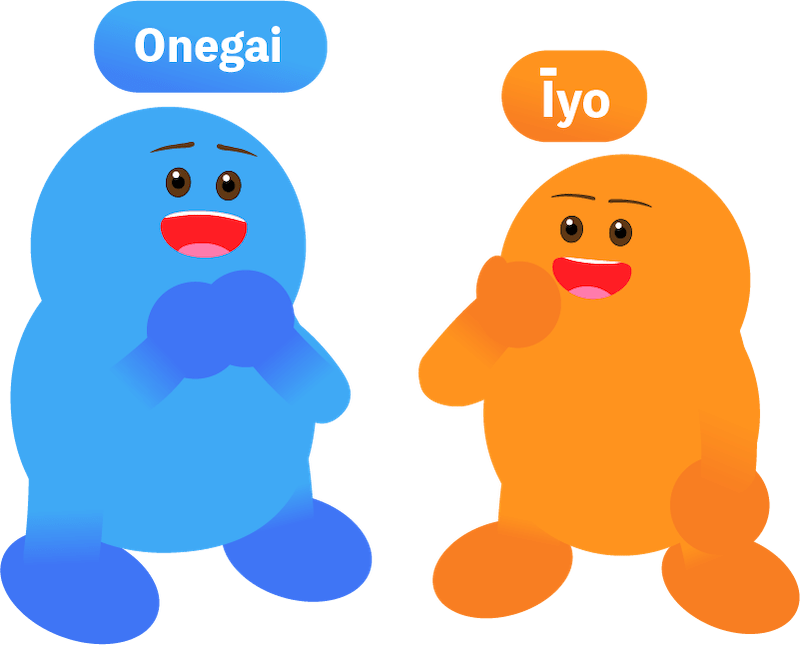
You ask a favor to your friend and he accepted.
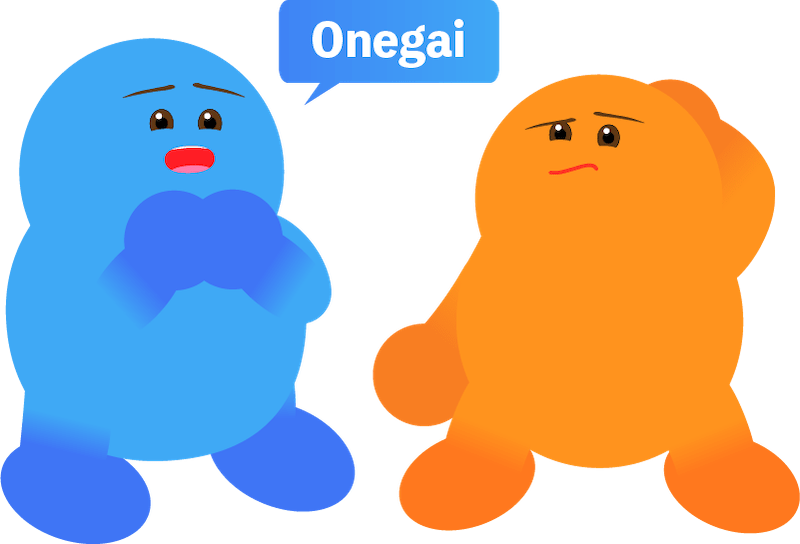
In this lesson, we'll explore the Japanese way of saying “please” and “thank you”.
When asking for a favor, the word we use is:
Onegai
This term originates from Negai, meaning “wish” or “hope”.
In Tameguchi, we just Onegai. But in Keigo, you would say:
OnegaiShimasu
Now, about responding to Onegai or OnegaiShimasu , there are a couple of common ways.
Of course, there are tons of responses depending on what’s going on, and the ones I'm showing you might not always be the right fit, but they work in a lot of situations.
If you’re agreeing to a request in Tameguchi, you'd say:
Īyo
which is like saying "okay" or "sure".
In Keigo, you'd say:
ĪDesuyo
If you have to say no, you would say:
Muri
It is the casual way to say it's not possible, and in Keigo, you would say:
MuriDesu
To soften the refusal, you can add Gomen or Sumimasen before Muri or MuriDesu , kind of like saying "Sorry, I can’t".

Be aware, though, these phrases can be too direct or even rude in certain situations, but they are generally acceptable in casual conversations.
When someone agrees to do you a favor and you want to express your gratitude, in Tameguchi, you can say:
Arigatō
In Keigo, it is:
ArigatōGozaimasu
In spoken Japanese, it's quite common to hear Arigato with the last letter not lengthened.
Arigato
Now, if someone says "thank you" to you, how should we respond?
Most textbooks will tell you to respond with:
Dōitashimashite
but this isn't commonly used in daily life.
It sounds a bit formal for casual conversations with friends or family, and it's actually considered rude in situations where you would use Keigo.
Weird, right? But that's just how it is.

There are a few ways, and people have their preferences, but I’ll share the common ones I often use and hear.
Ie Ie
This is a popular way to say "you're welcome" in Keigo situations. It’s crucial to listen to how it’s pronounced because just reading it won’t capture the natural sound.
Īe
This is also widely used. It literally means “No”, and Ie Ie is actually a more casual way of saying Īe. Both phrases are safe bets in most situations.
Ah Īyo
If you’re speaking in Tameguchi, this phrase, meaning “Oh, it’s okay”, works well. Adding Ah at the beginning makes it sound like a native speaker.
Remember, this topic is a bit complicated, and everyone has their own way of speaking.
And just to be clear, some people do use Dōitashimashite.
As a traveler in Japan, you might hear it in response to your thanks. But among native speakers, it's not that common unless when we are talking to kids, for example.

You ask a favor to your friend and he accepted.
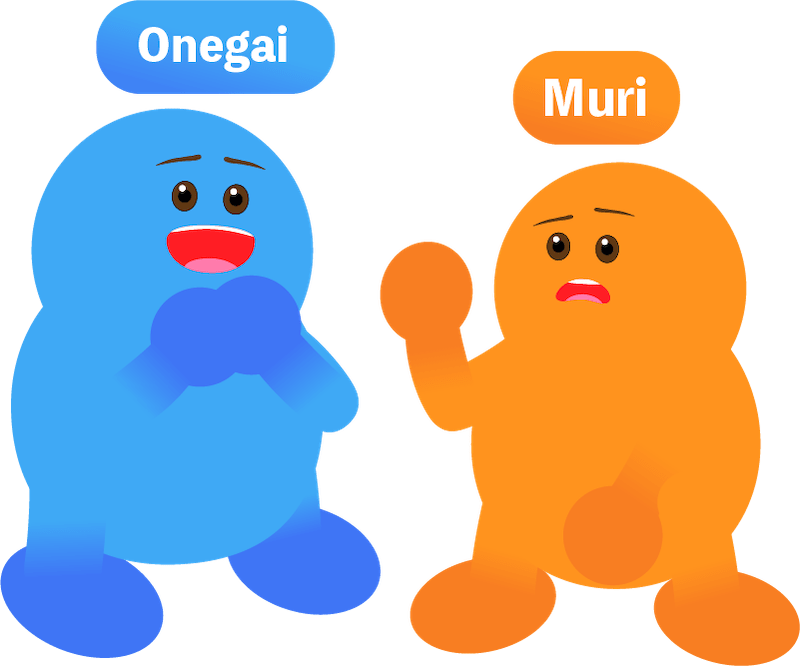
You ask a favor to your friend but he rejected.
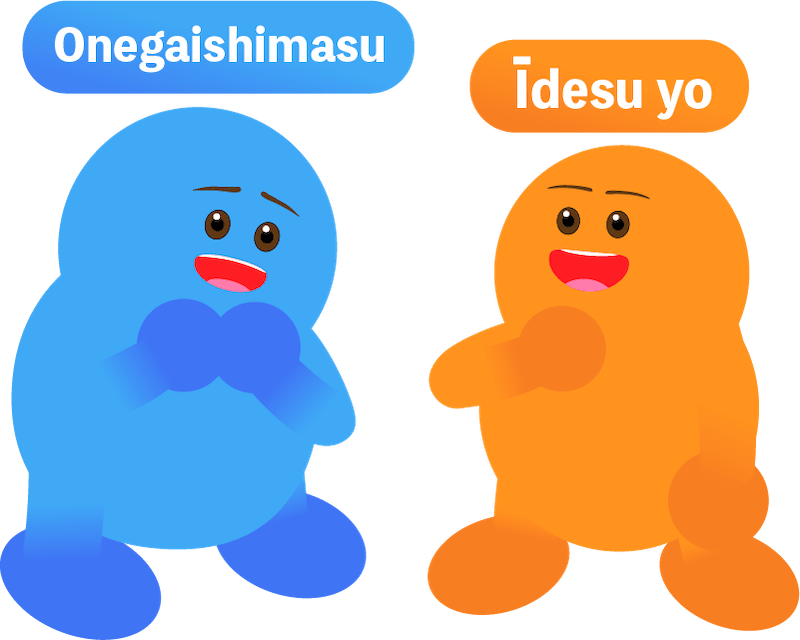
You ask a favor to someone you talk to in Keigo and he accepted.
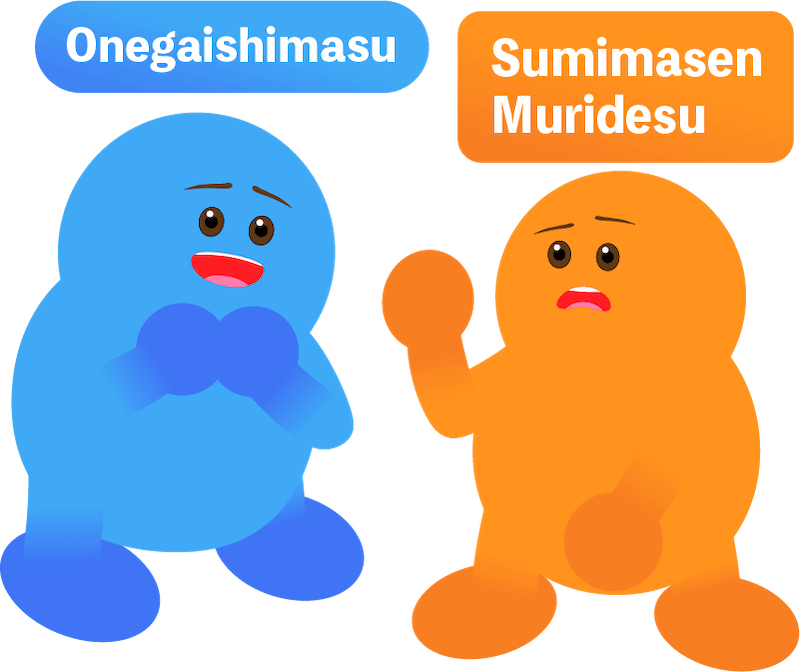
You ask a favor to someone you talk to in Keigo but he rejected.
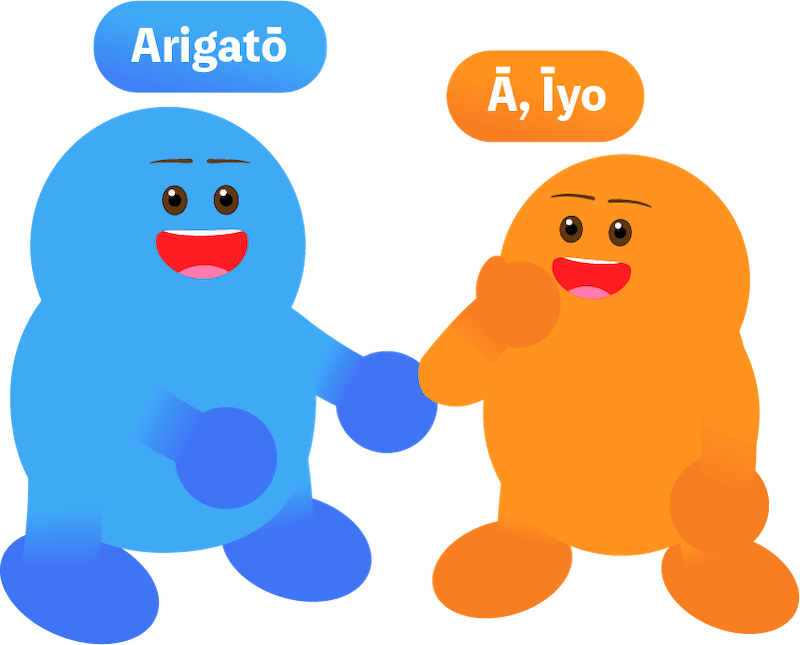
You say thank you to your friend.

You boss thanks you for what you did for him.
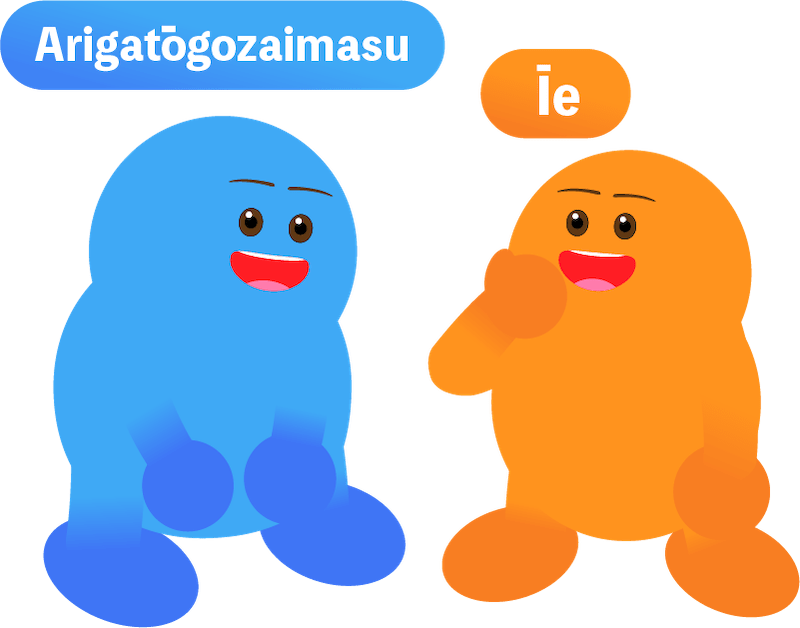
You say thank you to someone you talk to in Keigo.
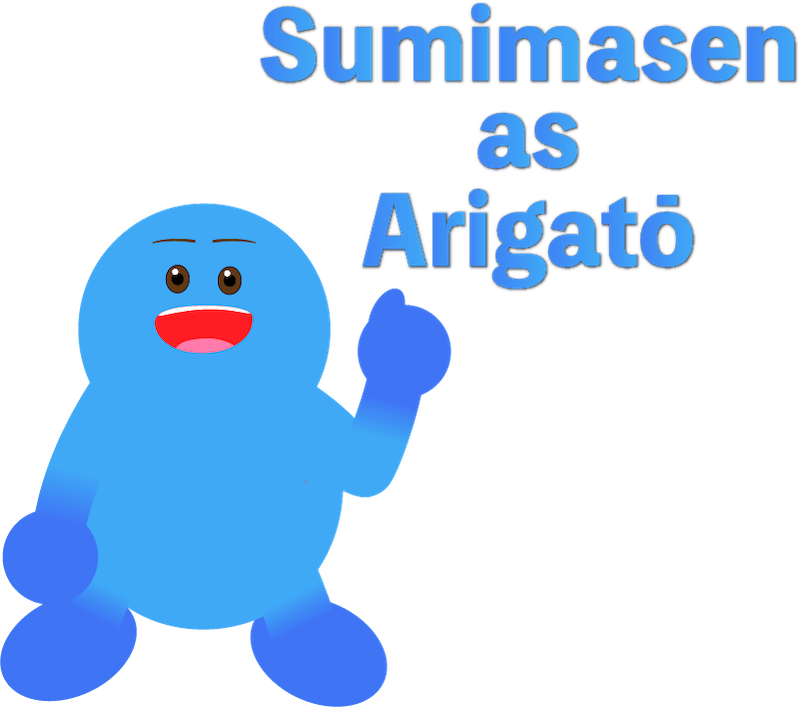
We learned that Sumimasen means sorry or excuse me but it can also be used to mean thank you.
This might seem confusing, but it makes sense when you consider the context.
We often say Sumimasen when someone extends a gesture of help or kindness towards us, like picking up a dropped pen or holding a door open.
In these situations, while you are grateful, you also acknowledge the effort or inconvenience caused to the other person. It's not an apology, but a form of gratitude combined with a recognition of their effort.
Of course, you can simply say Arigatō , but Sumimasen is frequently used because it reflects the sentiment of appreciation mixed with a slight sense of imposing.
By the way, between friends, we sometimes say GomenNe especially when we receive a gift.
This combination of gratitude and polite acknowledgment is a distinctive feature of Japanese social etiquette.
But, if you're just starting out with Japanese, don't worry about nailing all this down right away.
I wanted to bring this up because many foreigners in Japan often wonder about the frequent use of "sorry".
Now you know it's not just an apology, it's part of showing gratitude and respect.